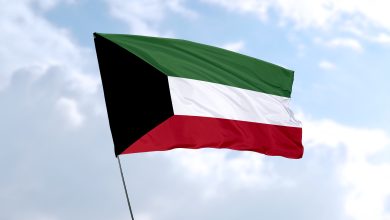Common Filipino expressions have taken on a vivid new life in the daily discussions of non-Filipino citizens of the United Arab Emirates (UAE), in an interesting linguistic twist.
Phrases like “ate,” “kuya,” and “kabayan” have evolved from simple words into a bridge to comradery and a warm sense of community among the diverse expat population, from the busy streets of Dubai to the quiet corners of Abu Dhabi.
“Ate” and “Kuya”: More than just siblings
The words “ate” and “kuya,” traditionally used by Filipinos to address older sisters and brothers respectively, have transcended familial boundaries and evolved into endearing terms of address for friends and acquaintances. Expats have embraced these terms, realizing that the connection they establish goes beyond mere words, and encapsulates the spirit of friendship that’s integral to the Filipino culture.
“Kabayan” bonds expats as family
In a true embodiment of the UAE’s multicultural tapestry, “kabayan” – which translates to “countryman” or “fellow Filipino” – has become a unifying force for Filipinos and non-Filipinos alike.This term knits individuals from different backgrounds into a closely-knit family, fostering a sense of solidarity and shared experiences.
Must-Know Filipino Phrases
Expats have also ventured beyond the basic pleasantries and dipped into the colorful tapestry of Filipino expressions.
Phrases like “salamat” (thank you), “paalam” (goodbye), and “magandang umaga” (good morning) are becoming a staple in cross-cultural interactions.
The charming “magandang hapon” (good afternoon) and the soothing “magandang gabi” (good evening) have also found their way into conversations, transcending language barriers with their delightful familiarity.
Building Bridges, One Word at a Time
The integration of Filipino words into the linguistic landscape of the UAE extends to more than just greetings. Phrases like “pwede po magtanong?” (may I ask a question?), “Ano ‘yan?” (what’s that?), “ingat” (take care), and “oo” (yes) have added depth to conversations, allowing for a more nuanced and empathetic exchange of ideas.
Read: Buwan ng Wika 2023: Filipinos beyond borders
For those who wish to immerse themselves even further, here are a few more gems from the Filipino vocabulary:
- Pakisabi: Adding a touch of politeness, this phrase translates to “please tell (someone)” and enriches communication with thoughtfulness.
- Naku: An exclamation that transcends language, “naku” is a versatile expression conveying surprise, dismay, or sympathy, adding a dash of emotion to conversations.
- Ayos lang: When words fall short, “ayos lang” comes to the rescue, meaning “it’s okay” or “I’m fine,” helping navigate through everyday ups and downs.
- San ka nakatira?: Building connections, this phrase translates to “where do you live?” and sparks conversations about neighborhoods and experiences.
- Ano ang ginagawa mo?: Delving into interests, “what are you doing?” sparks discussions about hobbies and daily routines.
- Kumusta ka?: Digging deeper, this means “how are you?” and opens doors to heartfelt conversations about well-being.
- Mahal kita: Lastly, a phrase that needs no translation, “mahal kita” translates to “I love you,” carrying its own universal resonance.
In a world brimming with languages, cultures, and experiences, the UAE continues to be a melting pot where Filipino words have carved a delightful niche, offering a glimpse into the warmth and inclusivity of the Filipino spirit.
So, whether you’re saying “salamat” with a smile or exclaiming “naku” with a chuckle, remember that these words are more than just sounds – they’re invitations to connect, communicate, and create lasting bonds across borders.




